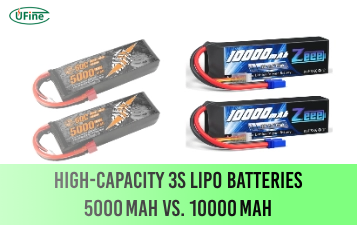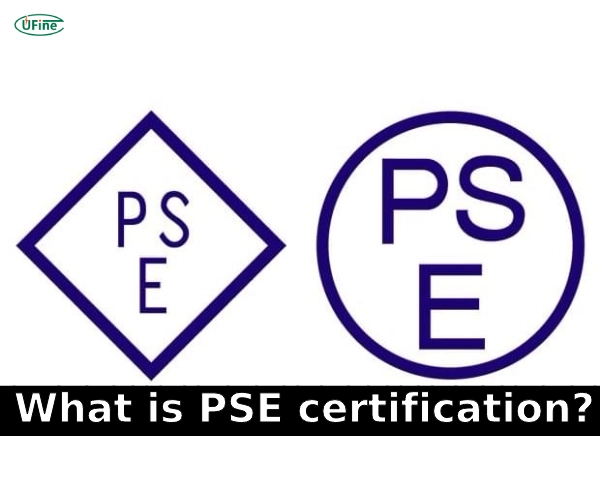Have you ever wondered about PSE Certification for lithium batteries? This article explores its basics and importance. Understanding the process is vital for safety and compliance. We’ll also compare it with other certifications to help manufacturers and consumers.
Part 1. What is PSE certification?
PSE certification is Japan’s required evaluation system, an abbreviation for Product Safety Electrical Appliance and Material Certification. It ensures that electrical items meet safety standards outlined by the DENAN Law.
Regulatory Background:
Japan’s Ministry of Economy, Trade, and Industry (METI) is responsible for PSE certification. METI implements and enforces regulations for electrical appliances and materials.
Legal and safety requirements that require PSE certification for lithium batteries:
- Safety Standards: PSE certification ensures lithium batteries meet DENAN Law safety standards. It covers electrical safety, thermal stability, and fire prevention.
- Consumer Protection: PSE certification protects consumers from lithium battery risks like short circuits and overheating. It ensures safety and builds confidence.
- Legal Compliance: Manufacturers need PSE certification to sell lithium batteries legally in Japan—non-compliance results in penalties.
- Market Access: PSE certification is vital for selling lithium batteries in Japan, limiting market opportunities without it.
Part 2. PSE Certification process for lithium batteries
Application and Documentation:
- Preparation: Before seeking PSE certification, ensure your lithium batteries meet safety and quality standards. Gather technical details and test results.
- Select Certification Body: Choose an accredited body like METI to handle your PSE certification.
- Submit Application: Complete the form detailing battery specs and usage.
- Documentation Submission: Include technical specs, SDS, and past test reports with your application.
- Payment of Fees: Pay the required fees to kickstart the certification process.
Testing and Evaluation:
- Initial Review: The certification body checks submitted documents for completeness and compliance with preliminary requirements.
- Laboratory Testing: Accredited labs conduct thorough tests on lithium batteries to assess electrical safety, thermal stability, and chemical composition.
- Performance Testing: Batteries undergo tests to assess capacity, charging cycles, and overall durability under different conditions.
- Safety Standards: Testing ensures compliance with safety standards, protecting against overcharging, short-circuiting, and extreme temperatures.
Certification and Labeling:
- Test Results Review: The certification body checks test results. If batteries pass, certification follows.
- Issuance of Certification: Successful review leads to PSE certification issuance.
- Award of PSE Mark: Certified batteries get the PSE mark displayed on the product and packaging.
Guidelines for Proper Labeling:
- Ensure correct labeling with the PSE mark and include certification numbers from the certification body.
- Give clear instructions and safety warnings in product documentation.
- Keep thorough records of certification documents and test results for regulatory compliance.
Part 3. Importance of PSE certification for lithium batteries
- Ensures Safety: PSE certification assures lithium batteries meet strict safety standards, reducing fire and overheating risks.
- Enhances Trust: Consumers rely on PSE-certified products, knowing they’re thoroughly tested and meet Japanese safety rules.
- Facilitates Market Access: PSE certification is crucial for entering Japan’s market and expanding business.
- Prevents Legal Issues: Meeting PSE requirements avoids legal problems and ensures smooth product distribution.
Part 4. Understanding PSE Certification Symbols
When navigating the landscape of PSE certification for lithium batteries, it’s crucial to comprehend the significance of the certification symbols. The two primary symbols associated with PSE certification are diamond-shaped and circular.
Diamond-shaped Symbol (PSE Diamond Mark):
- This symbol indicates that a product has successfully passed PSE certification and meets the safety standards mandated by Japanese regulations. It signifies the product is legally eligible for sale and distribution in the Japanese market.
Circular Symbol (PSE Circular Mark):
- Conversely, the circular symbol signifies that a product may comply with specific technical specifications or standards but has yet to undergo PSE certification. While the product might adhere to other relevant standards, it must still complete the formal PSE certification process.
Part 5. Comparison with other international certifications
PSE vs. CE Certification
Key Differences and Similarities:
- Scope and Region: PSE Certification applies to Japan, ensuring Japanese safety standards. CE Certification is for the European Union, focusing on EU health and safety.
- Testing Standards: PSE Certification follows Japanese electrical and chemical safety standards. CE Certification tests general safety and EMC based on EU directives.
- Regulatory Bodies: METI in Japan oversees PSE Certification. Notified bodies in the EU regulate CE Certification.
Applicability in Different Regions:
- PSE Certification: Mandatory for products sold in Japan, ensuring compliance with Japanese safety and quality standards.
- CE Certification: Mandatory for products sold in the European Union, required for legal marketing and sales in EU countries.
PSE vs. UL Certification
Comparison of Safety and Performance Standards:
- Safety Standards: PSE ensures compliance with Japanese safety standards, covering electrical, thermal, and chemical safety. UL, recognized in North America, focuses on safety testing.
- Performance Standards: PSE tests capacity, charging cycles, and durability in Japan. UL prioritizes safety and performance.
Market Implications of Holding Both Certifications:
- Increased Market Access: Having PSE and UL certifications expands sales in Japan and North America.
- Enhanced Credibility: Both certifications boost product trust and attract customers globally.
- Competitive Advantage: Holding both certifications shows commitment to safety and quality, giving an edge in the market.
- Regulatory Compliance: Meeting regulations reduces legal risks and maintains brand trust.
Part 6. Final words
Remember that Ufine Battery’s products are PSE certified, ensuring excellent safety and compliance. If you’re a distributor or buyer in Japan looking for reliable lithium batteries, please contact us for smooth transactions and trusted partnerships.
Part 7. FAQs
-
How long does obtaining PSE certification for lithium batteries take?
The time frame for obtaining PSE certification varies depending on factors such as the application’s completeness, the certification body’s workload, and the complexity of the testing required. On average, completing the certification process may take several weeks to a few months. -
Can I apply for PSE certification for lithium batteries online?
Yes, many certification bodies offer online application systems for PSE certification. However, specific documentation and paperwork may still need to be submitted physically or electronically. -
What are the common reasons for rejection of PSE certification applications?
Some common reasons for PSE certification application rejection include incomplete documentation, failure to meet safety standards during testing, and non-compliance with regulatory requirements outlined by the certification body. -
Is PSE certification mandatory for all lithium batteries sold in Japan?
Yes, PSE certification is mandatory for all lithium batteries sold in Japan to ensure compliance with safety standards set by the DENAN Law. Withturers cannot legally market or dictate their lithium batteries without PSE certification in Japan. -
Can I use a previously obtained PSE certification for a new lithium battery model?
No, each lithium battery model requires its own PSE certification. Manufacturers must undergo the certification process separately for each new battery model they intend to sell in Japan.
Related Tags:
More Articles

High‑Capacity 3S LiPo Batteries: 5000 mAh vs. 10000 mAh
Compare 3S LiPo 5000mAh vs 10000mAh batteries by weight, power, and use. Find the best fit for your drone, RC car, or boat setup.
Top 5 Applications for Small 3S LiPo Batteries
Small 3S LiPo batteries power drones, RC gear, wearables, and robotics with high energy and low weight. Making them ideal for compact electronics projects.
Building and Charging Your Own 3S LiPo Pack: A Step‑by‑Step Guide
Learn how to build, balance, and charge a 3S LiPo battery pack safely at home with this complete DIY guide for hobbyists and beginners.
How to Choose the Right LiPo Battery Plug Type?
Discover the best LiPo battery plug types, how to choose them, and expert tips for safe usage, soldering, and maintenance.
Choosing the Right Connector for Your 3S LiPo Battery
Choosing the right 3S LiPo connector depends on current, space, and use. Learn the pros and cons of XT60, JST, EC3, and more.




